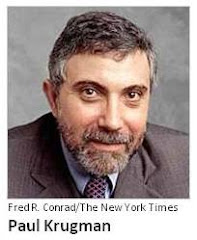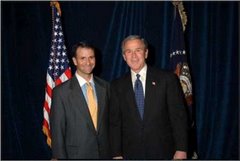 This morning I caught the award ceremony at the French Open Tennis Championship, and I, along with the commentators, was struck by the multi-lingual skills of Roger Federer. In his wikipedia entry it says this about Federer's linguistic abilities: "He considers his main language German, but he also speaks French and English fluently." Not a particularly remarkable skill for a citizen of Switzerland or many other European countries, but one that apparently many Americans find terrifying.
This morning I caught the award ceremony at the French Open Tennis Championship, and I, along with the commentators, was struck by the multi-lingual skills of Roger Federer. In his wikipedia entry it says this about Federer's linguistic abilities: "He considers his main language German, but he also speaks French and English fluently." Not a particularly remarkable skill for a citizen of Switzerland or many other European countries, but one that apparently many Americans find terrifying.The web site U.S. English, Inc. presents a case for making English the official language of this country, one that panders to some right-wing Americans' most base attitudes. Besides reporting on the passage of the S.I. Hayakawa National Language Amendment Act of 2007, offered by Senator James Inhofe (R - OK), the web site goes on to list a few of the reasons why English must be preserved as the national language of the United States. None of the reasons hold up under scrutiny, but they provide the basis for remarks such as the one offered by Rep. Tom Tancredo (R - CO) last week at the GOP Debate:
"Believe me when I tell you this, English — the preservation of the English language is important for us for a lot of reasons, not the least of which is because it is what holds us together. It is the glue that keeps a country together, any country. Bilingual countries don’t work, and we should not encourage it."
Not only is the fallacy of this argument painfully clear to anyone who has even a rudimentary knowledge of other countries - Canada, for example. Although Afghanistan, India and China may not be beacons of democracy or freedom, it is not multilingualism that is creating the problems that each one is facing. But it is also an insult to the rest of the world to announce that we won't bother to learn how to communicate with others, however, we do expect that others will learn our language so that should we ever need anything from them, they'll be able to understand us and serve our wishes. Not every American shares Tancredo's or Inhofe's arrogance and limited vision - thank goodness.
One of my sister's spent time in the Peace Corps and is fluent in at least three languages. I'll never forget her remark to me when I told her that I planned to major in English in college. "That's the best you can do, a language you already speak!" We both had a good laugh, and I did go on to study English and American literature, but I've never forgotten my sister's remark and the truth that hides not too deep in those words.
One of my sister's spent time in the Peace Corps and is fluent in at least three languages. I'll never forget her remark to me when I told her that I planned to major in English in college. "That's the best you can do, a language you already speak!" We both had a good laugh, and I did go on to study English and American literature, but I've never forgotten my sister's remark and the truth that hides not too deep in those words.
There is something inherently insular and narcissistic about Americans' worldview, something that makes us as a people think that learning another language would somehow diminish us as a society when just the opposite is true. If I were the Secretary of Education, we would be teaching Arabic, Hindi and Mandarin Chinese in HeadStart classes across the country. Every study done on language acquisition shows that the earlier another language is introduced, the easier it is not only for the learner to acquire a second language, but also to later learn a third and even fourth language. Of what are we so afraid?
"English Only" laws reflect a stubborn view and an unfounded fear on the part of those lawmakers who propose these inane pieces of legislation. English is the universal language of commerce. It is far and away the language most people from other countries are likely to speak if they speak a second language. There is little danger that English (or American as the Brits might suggest) will cease to be the primary language of this country. Tancredo's ridiculous vision of a country in which he isn't inconvenienced by having to press "1" for English is just that - a selfish claim to an inconvenience with which he would rather not be bothered. Nada mas, nada menos (nothing more, nothing less).
Another point against "English Only" laws is that they often sweep up Native American languages in their wake. Native languages have been spoken across this land long before English was even introduced by Europeans. It is just a fluke of history and warfare that we are not speaking French or German or Spanish today, nevermind Cherokee or Chahta or Navajo. These languages are playing an important part in keeping cultures and traditional ways alive. Every so often we read about a Native elder who passed away taking a world of knowledge with her/him and some of us recognize what we have lost.
We must cultivate a sensible foreign policy that recognizes that no single country need be dominate on this planet in the next millenium. In fact, our very survival (unlike the survival that Mr. Tancredo mentioned in the debate) will depend on our ability to work together on problems that we all are facing - problems such as global warming, and the finite amount of oil and fresh water, and the ever-shrinking rainforests. In order to accomplish these tasks we must be able to communicate with each other, beyond threatening each other with guns and bombs.
Here are a few more good reason why we don't need and would actually be harmed by instituting an "English Only" law (From the ACLU's web site)
"The Inhofe English-Only amendment would punish citizens who need access to medical care and disaster relief, and it would raise new barriers to learning English. This country needs better access to English education for limited speakers, not a mute button on government access for millions of Americans."
--Caroline Fredrickson, Director of the ACLU Washington Legislative Office
The Inhofe amendment would deny limited-English proficient (LEP) Americans access to basic government information such as instructions on how to pay taxes, which would inadvertently promote tax evasion. It would limit information about federal policies and government services in languages other than English. It would bar instructions about workplace safety, natural disasters and vaccinations in a form that all Americans can understand. It would also prevent LEP patients, particularly the elderly, from communicating with their doctors. It is a dangerous amendment that places every American at risk.
"The Inhofe Amendment does nothing to promote the use of English. It does not reduce the long waiting lists for English classes or educational discrimination against Americans with limited English. Instead, it keeps people who want to learn English from speaking it. It panders to English-only groups seeking to exclude millions of language minorities from American society."
--James Thomas Tucker, ACLU Policy Counsel and Author of a 2006 study of ESL waiting times

































































No comments:
Post a Comment